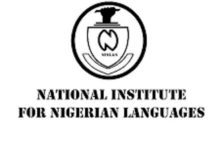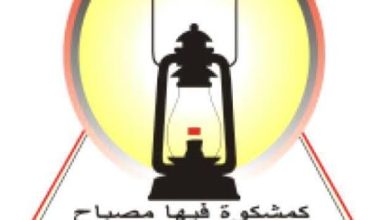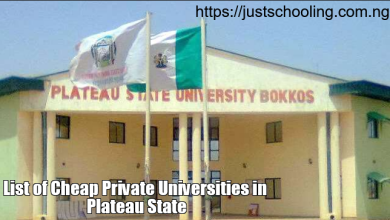The College of Education, Nsukka, Courses, Hostel Accommodations and Admission Requirements
Do you want to enroll in The College of Education, Nsukka but you don’t know if the course you want to study is being offered by the School? How about understanding the necessary requirements for enrollment in the school? You can use the information in this article to learn everything you need to know about the school.
This article details the school admission requirements, hostel accommodations and list of courses offered
About the College of Education, Nsukka
The College of Education, Nsukka is a prestigious and innovative institution that was established in 1964. Located in Enugu State, Nigeria, it is one of the oldest and most esteemed colleges of education in the country. This section will provide an overview of its history, purpose, academic offerings, and campus life.

The college traces its origins to a teacher training institution that was founded in 1932. Over time, it has grown and evolved into a leading college that produces high quality teachers and educational administrators. The college aims to provide quality teacher education programs and conduct research that advances pedagogical knowledge and improves educational outcomes in Nigeria.
The College of Education, Nsukka Admission Requirements
There are some things you need to do in order to get into The College of Education, Nsukka Knowing these ahead of time will help you make sure your application is complete and raise your chances of being accepted.
Minimum Requirements for Admission
In order to be admitted, you must:
- Have at least five credits in related subjects, such as English Language, Mathematics, one Science subject, and two other subjects. You can get these credits in one sitting or over two sittings, but not more than five credits in a row.
- You have to be at least 16 years old to apply.
Must have at least five years of education after elementary school. - For Direct Entry candidates, you must have at least one upper credit in the appropriate ND program.
- Must get at least the minimum score on the UTME to get into the college. The cut-off mark changes every year based on how much competition there is.
- Must have made their first choice when they signed up for JAMB.
Steps for Applying
If you want to get Admission you need to do the following:
- You can either buy the college’s application form from the admissions office or get it from the website. Carefully read and fill out the form.
- Attach printouts of your IDs, such as your birth certificate, WAEC or NECO results, proof of where you live, etc., to the form you’ve filled out
- Before the due date, bring the completed admission form along with the necessary papers to the admissions office. Applications that are too late will not be looked at.
- Check the website or notice board of the admissions office or the admissions list to see if you were given provisional admission.
- You have until the due date to accept the offer of entry on the college’s website or in person at the admissions office. If you do not accept by the limit, you will lose your chance to be admitted.
- When school starts up again, go to the college for screening and registration. Bring the original copies of the papers that are attached to your admission form so that they can be checked.
- Being able to go is possible if you carefully follow these entrance rules.
Courses Offered
- Adult Education
- Arabic / English
- Arabic / History
- Arabic / Islamic Studies
- Arabic / Social Studies
- Biology / Chemistry
- Biology / Geography
- Biology / Integrated Science
- Biology / Mathematics
- Business Education
- Chemistry / Physics
- Christian Religious Studies / English
- Christian Religious Studies / History
- Christian Religious Studies / Hausa
- Christians Religion Studies / Social Studies
- Computer Education / Physics
- Computer Science Education / Mathematics
- Early Childhood Care Education
- Economics / Geography
- Economics / History
- Economics / Mathematics
- Economics / Social Studies
- Education and Arabic
- Education and Biology
- Education and Christian Religious Studies
- Education and Economics
Hostel Accommodation at the College of Education, Nsukka
The College of Education, Nsukka provides hostel accommodation to students to support their wellbeing and academic success. Hostel rooms offer a quiet, comfortable place for students to study and rest.
- The hostels have furnished single rooms as well as shared rooms depending on availability and student preferences. Basic amenities like electricity, water, and Wi-Fi are provided.
- Several hostel blocks are situated on campus, while additional hostel spaces are available within walking distance off campus. Efforts are made to keep students of similar academic levels together in hostel blocks.
- To reside in the hostels, students must apply at the time of admission and agree to follow all hostel policies and code of conduct. Payment of hostel fees is required prior to moving in.
- While the college aims to provide hostel accommodation to all students who desire it, rooms are subject to availability. As such, students are advised to apply early.
- Hostel wardens live on premises and are available to support student needs. Healthcare services, security personnel, cleaners and cooks also serve students residing in the hostels.
The College of Education, Nsukka strives to ensure hostel accommodation provides students with a positive living-learning environment to empower their studies. Students are encouraged to embrace hostel life and engage with diverse peers.
What is the application process?
Applications are accepted online through the college’s website. Required documents include copies of academic transcripts, birth certificate, and exam results. There are deadlines each term for submission of applications. Competitive entry requirements are based on exam performance.
What facilities are available on campus?
The college has lecture halls, science and computer labs, a library with over 58,000 volumes, sports amenities, medical facilities, campus shops and cafeterias, and on-campus accommodation for students. There are also clubs and societies that provide opportunities for students to get involved.
What scholarships or financial aid options are offered?
The college provides scholarships and bursaries to high-achieving students in need of financial assistance. There are also opportunities for funding and grants through government education agencies. Students should enquire with the admissions department regarding application for available financial aid options.
Read also: Best Universities to Study Environmental Studies in Nigeria









